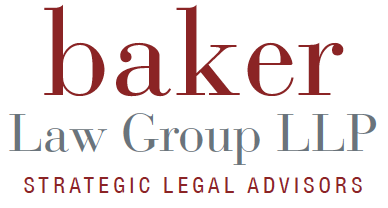 Sometimes emergencies happen which require you to take off time to care for a sick family member. Although not every employer has policies that allow employees to do this, the Family and Medical Leave Act (FMLA) requires certain employers to provide a base level of time off for these needs.
Sometimes emergencies happen which require you to take off time to care for a sick family member. Although not every employer has policies that allow employees to do this, the Family and Medical Leave Act (FMLA) requires certain employers to provide a base level of time off for these needs.
FMLA Entitlements
FMLA (29 USC § 2611) allows employees who qualify to take unpaid time off from work in order to care for certain family members. Workers on FMLA leave are entitled to:
- As much as 12 weeks of leave per year
- Continuation of group health insurance
- Mandatory restoration of the same or equivalent position when returning to work.
Who Qualifies?
To qualify for FMLA leave an employee must work for an employer with at least 50 employees within a 75 mile radius of the employee’s workplace. The employee also must have worked at least 1250 hours in the previous 12 month period for the current employer, which is an average of about 24 hours per week.
Not every medical emergency will allow an employee to take leave. Only the following reasons are covered:
- Care for a newborn baby, or an adopted child or foster care placement child within one year of placement
- Care for the employee’s child, parent, or spouse with a serious health condition.
- Care for the employee’s own serious health condition that prevents them from working
Employee may also request military related leave for the following reasons:
- A qualifying need that comes from a spouse, offspring, or parent being called into active duty.
- Or care for a service member who is in the employee’s immediate family, or is next of kin with a serious injury (under this situation an employee can receive 26 weeks of leave)
A serious health condition under FMLA means any condition that requires:
- Hospitalization
- Three or more days of incapacity and either two visits from a doctor or continuing treatment by a doctor during the three days.
- Or a chronic or long term incurable condition that, if not treated, would result in more than 3 days of absence.
Generally speaking pregnancies and restorative surgery after an injury qualify an employee for FMLA leave.
Notice Required
An employee must give 30 days of notice if the leave is foreseeable. However, this is not always possible so an employee should give as much notice as is practicable in urgent situations. This means that notice can be less than two days in some situations.
An employee does not need to specifically mention FMLA, but an employee should give the employer enough knowledge to determine whether the leave qualifies under FMLA.
Employees Must Not be Retaliated Against for Using FMLA
Employees taking leave must not be retaliated against in any way including but not limited to termination, demotion, or harassment. An employer is liable for damages that arise from adverse action taken against an employee who exercises the right to FMLA leave. Damages may include:
- Lost wages and benefits
- Liquidated damages up to twice the actual damages
- Attorneys fees and costs of filing the lawsuit
If you believe that your employer has retaliated against you for taking time off to care for yourself or a loved one you may be entitled to sue the employer for damages done to you. To learn more, contact Baker Law Group, LLP today. Call (858) 452-0093 to schedule a free consultation.
